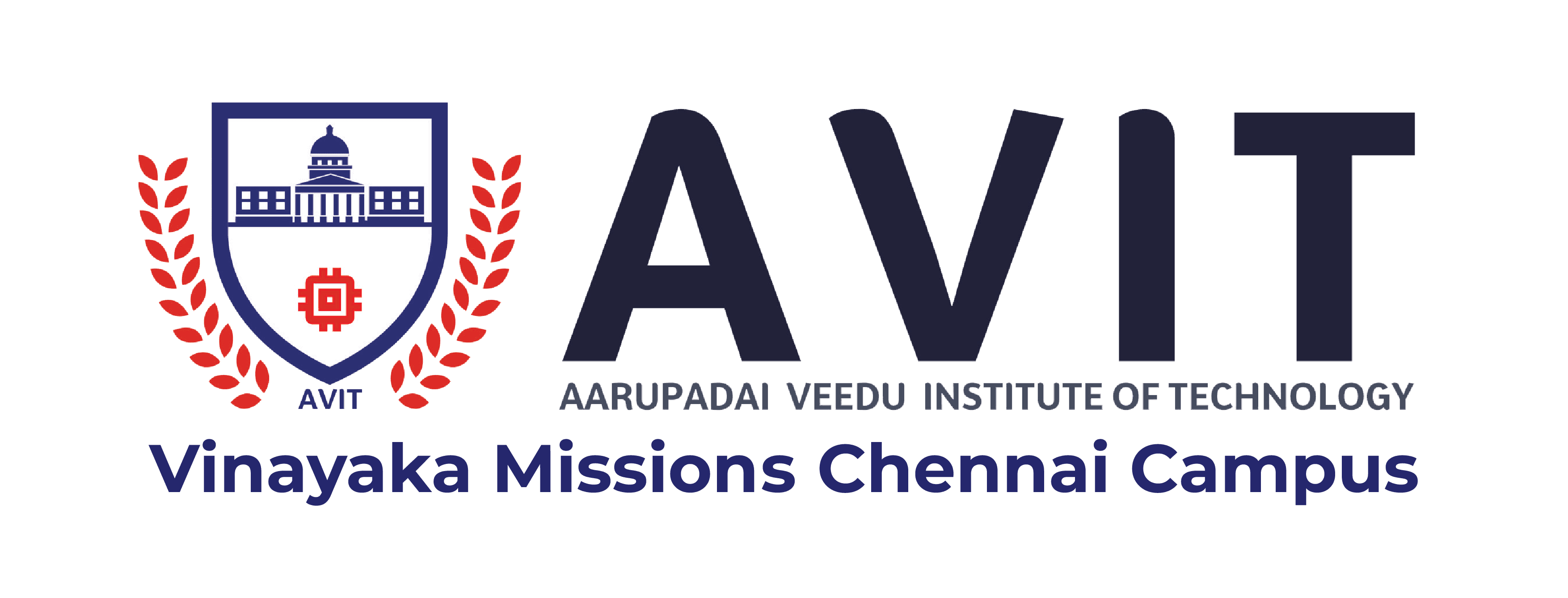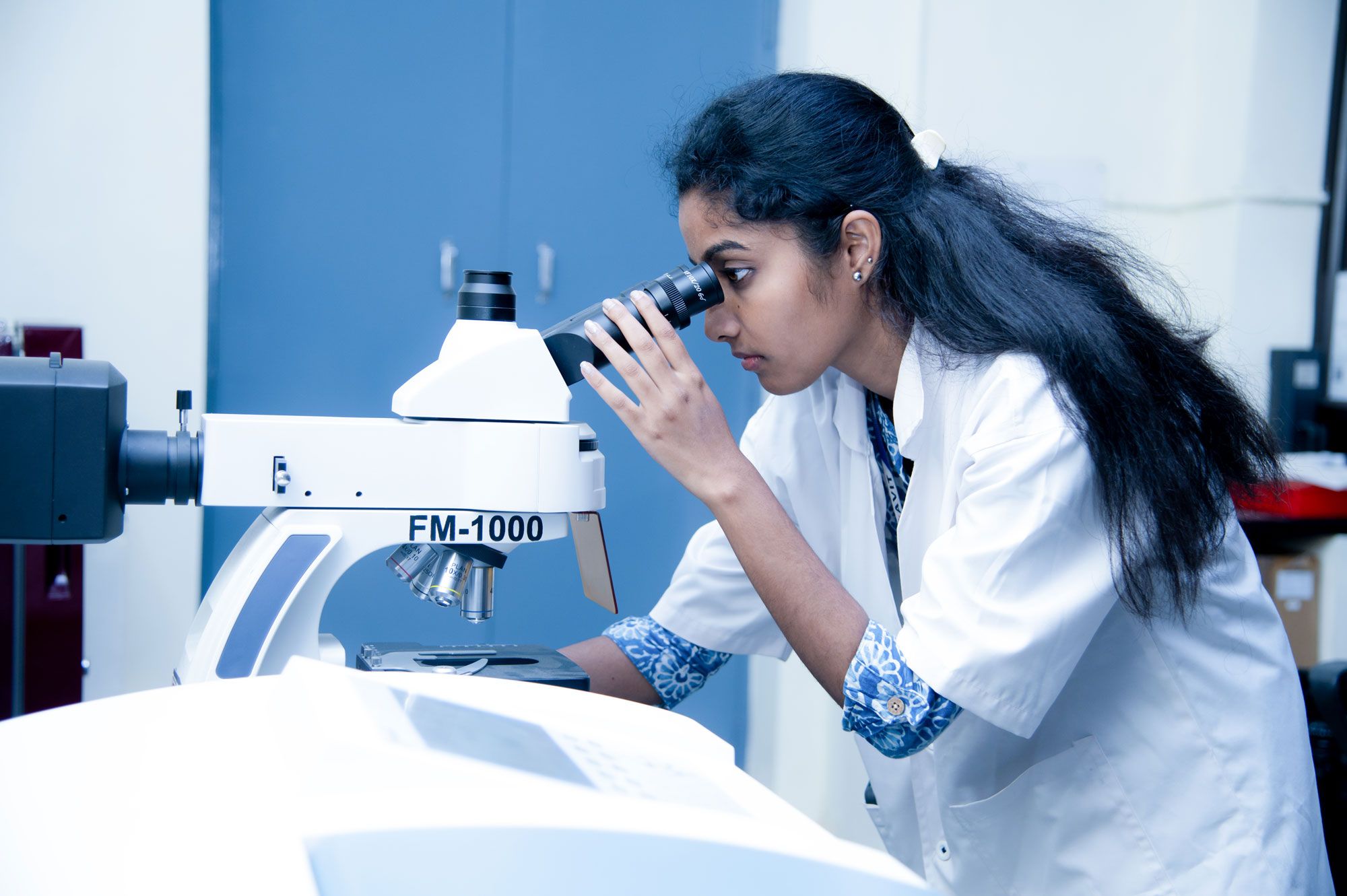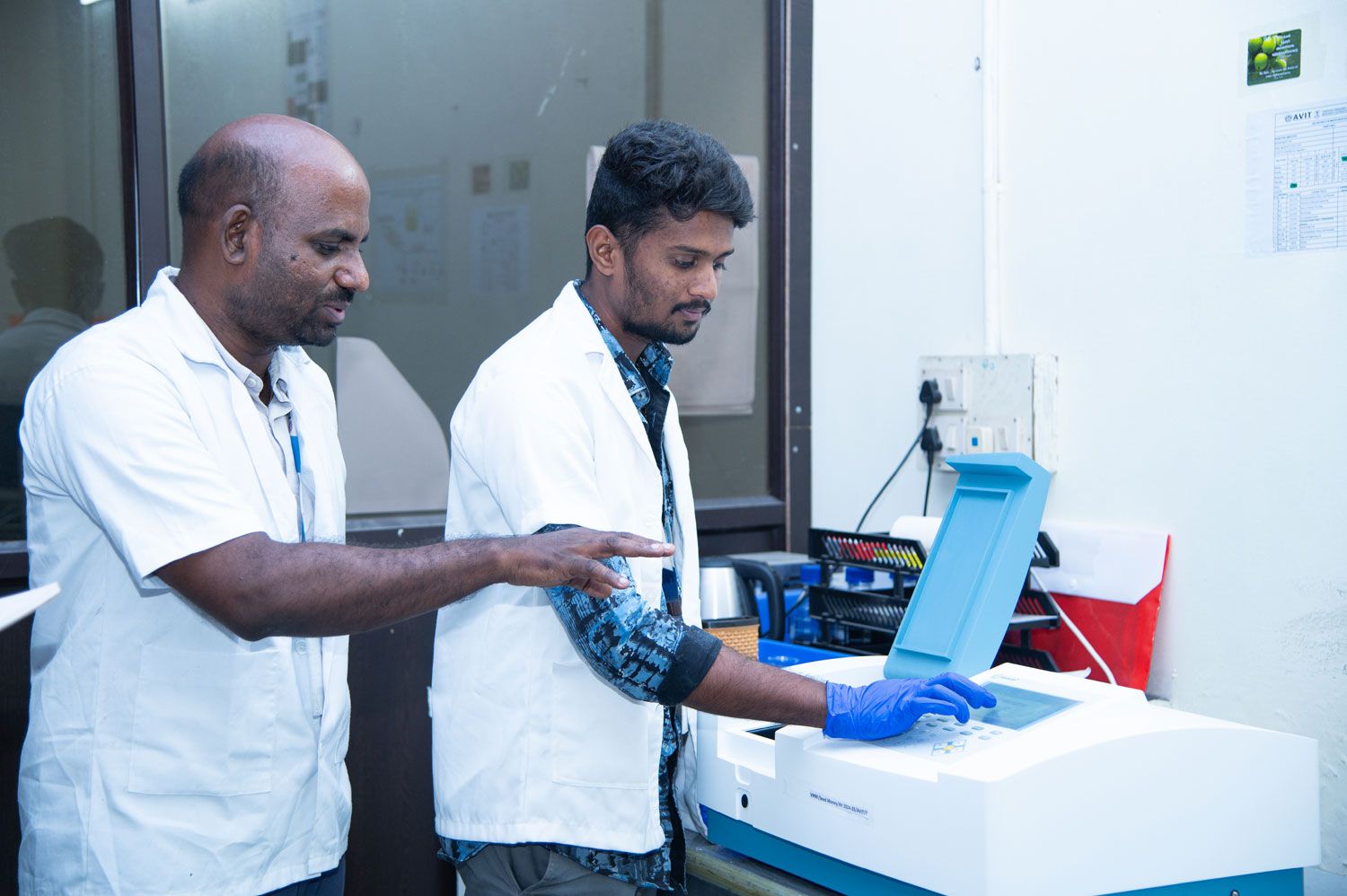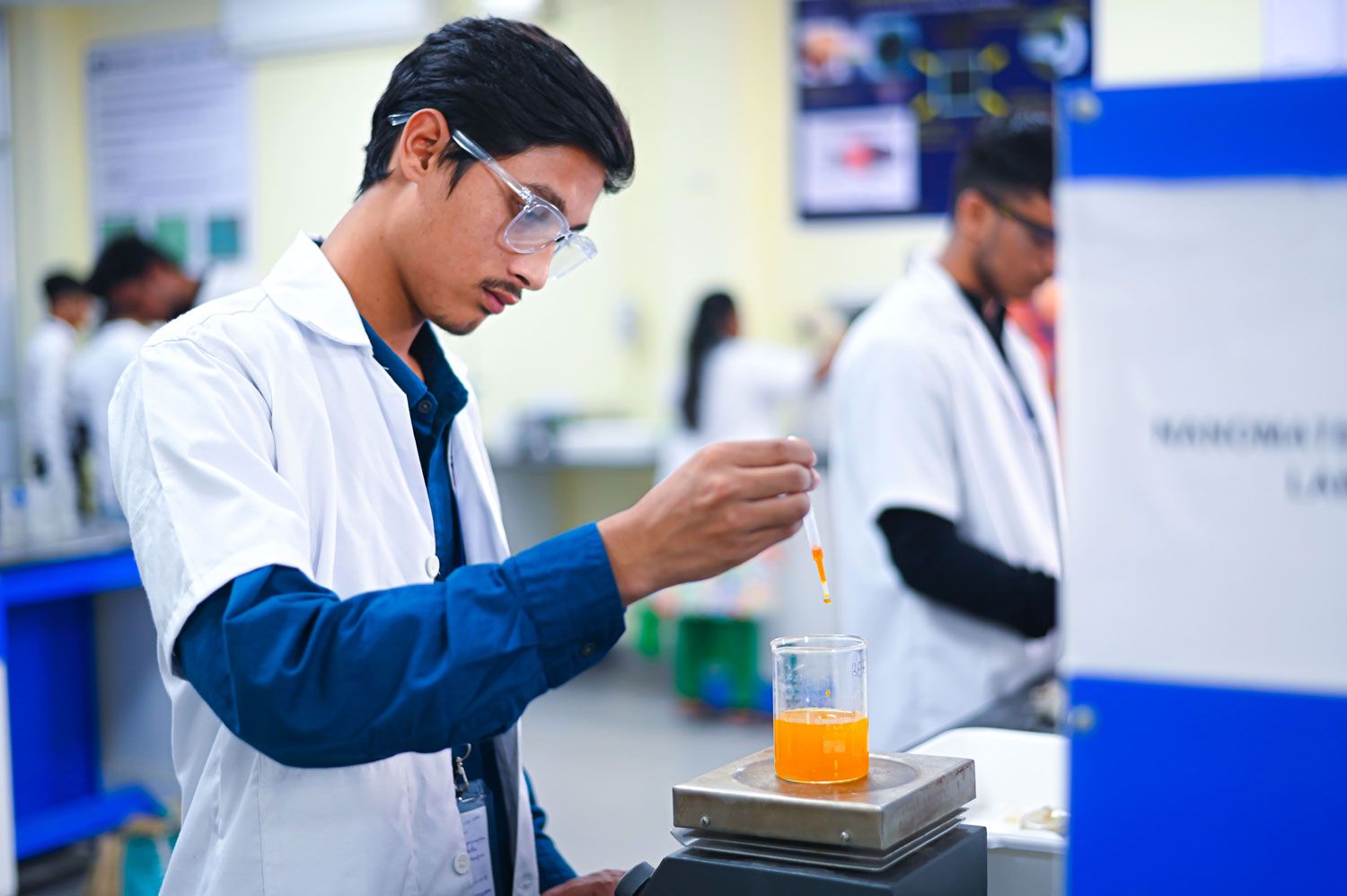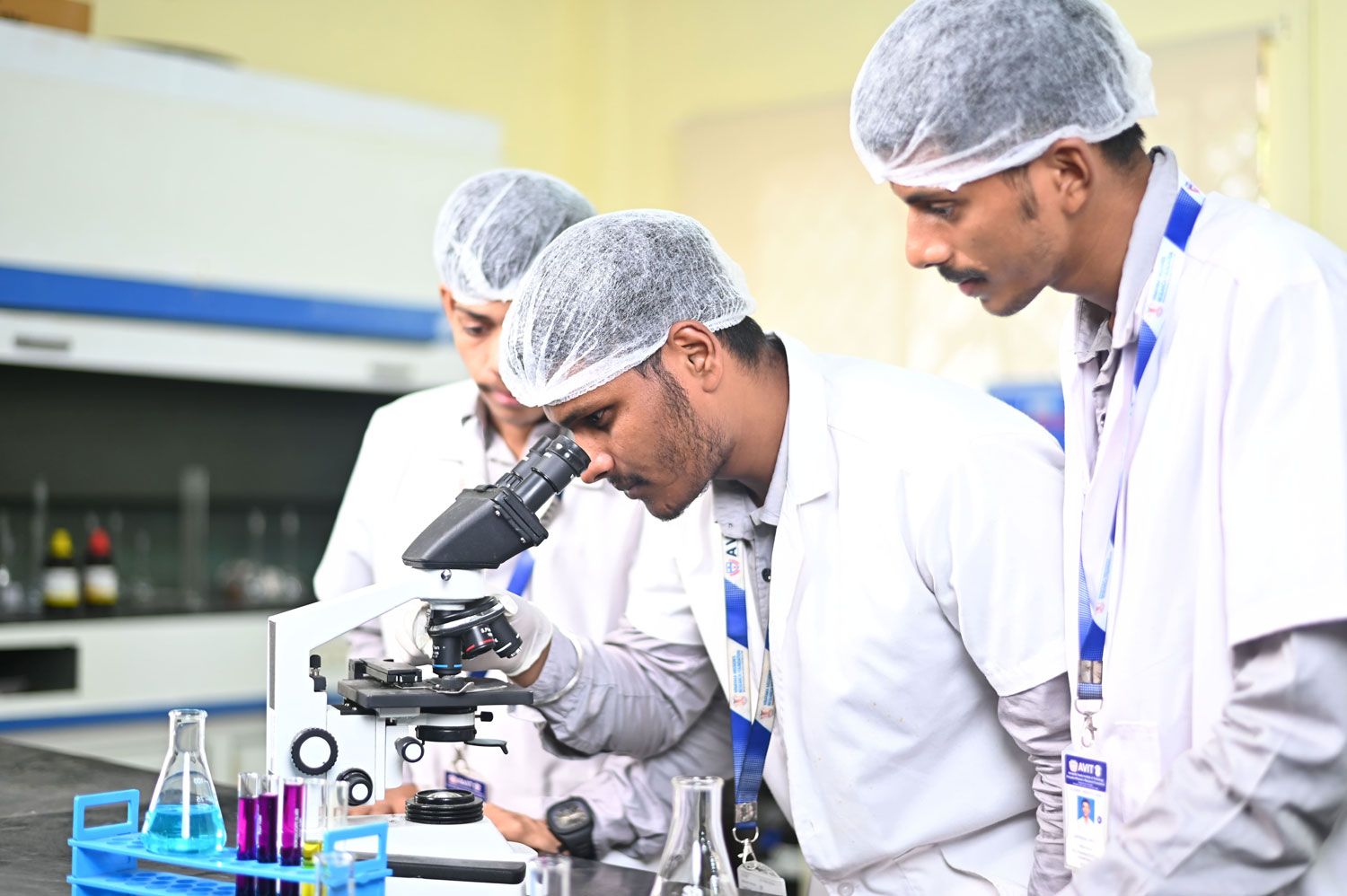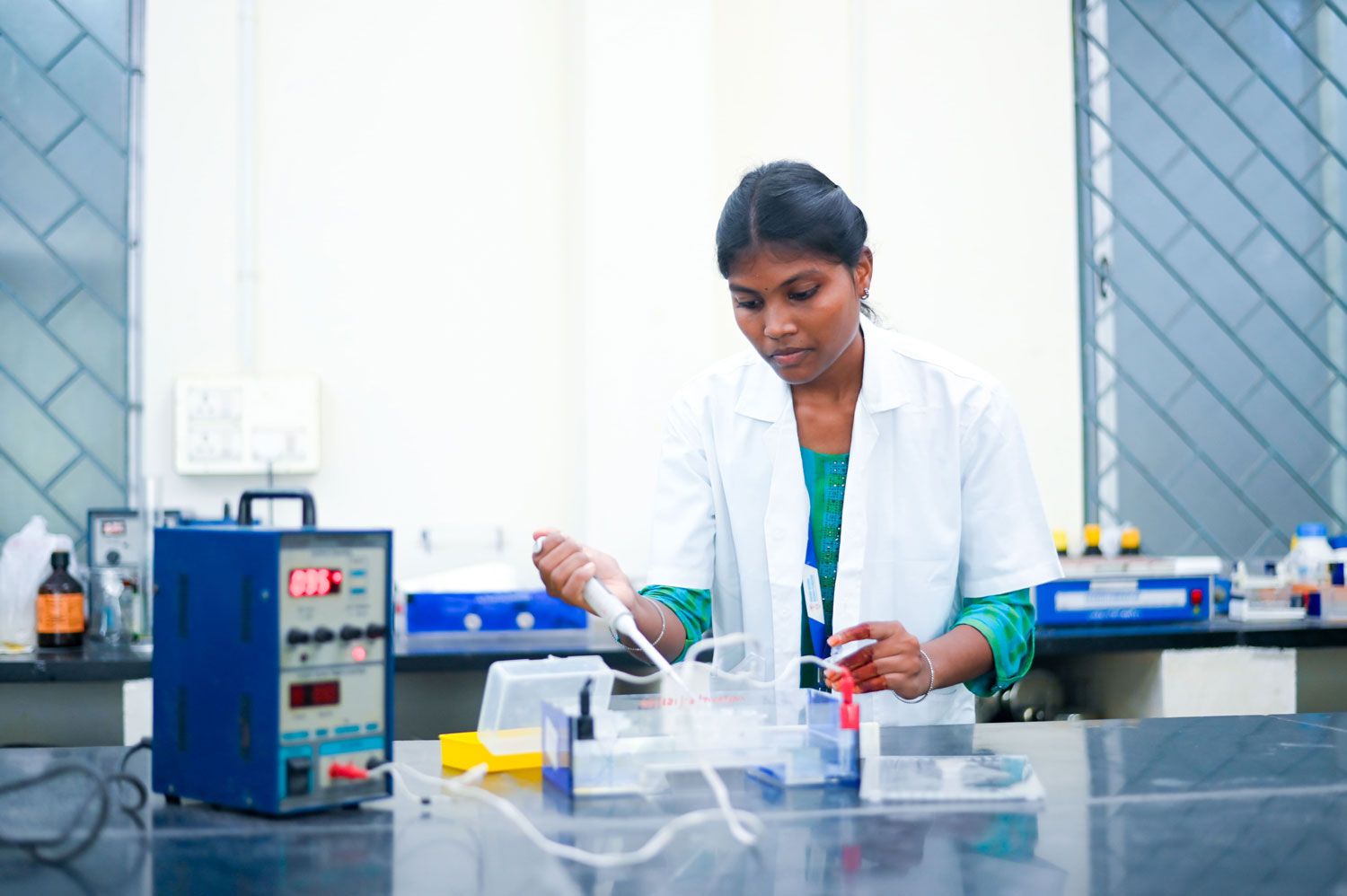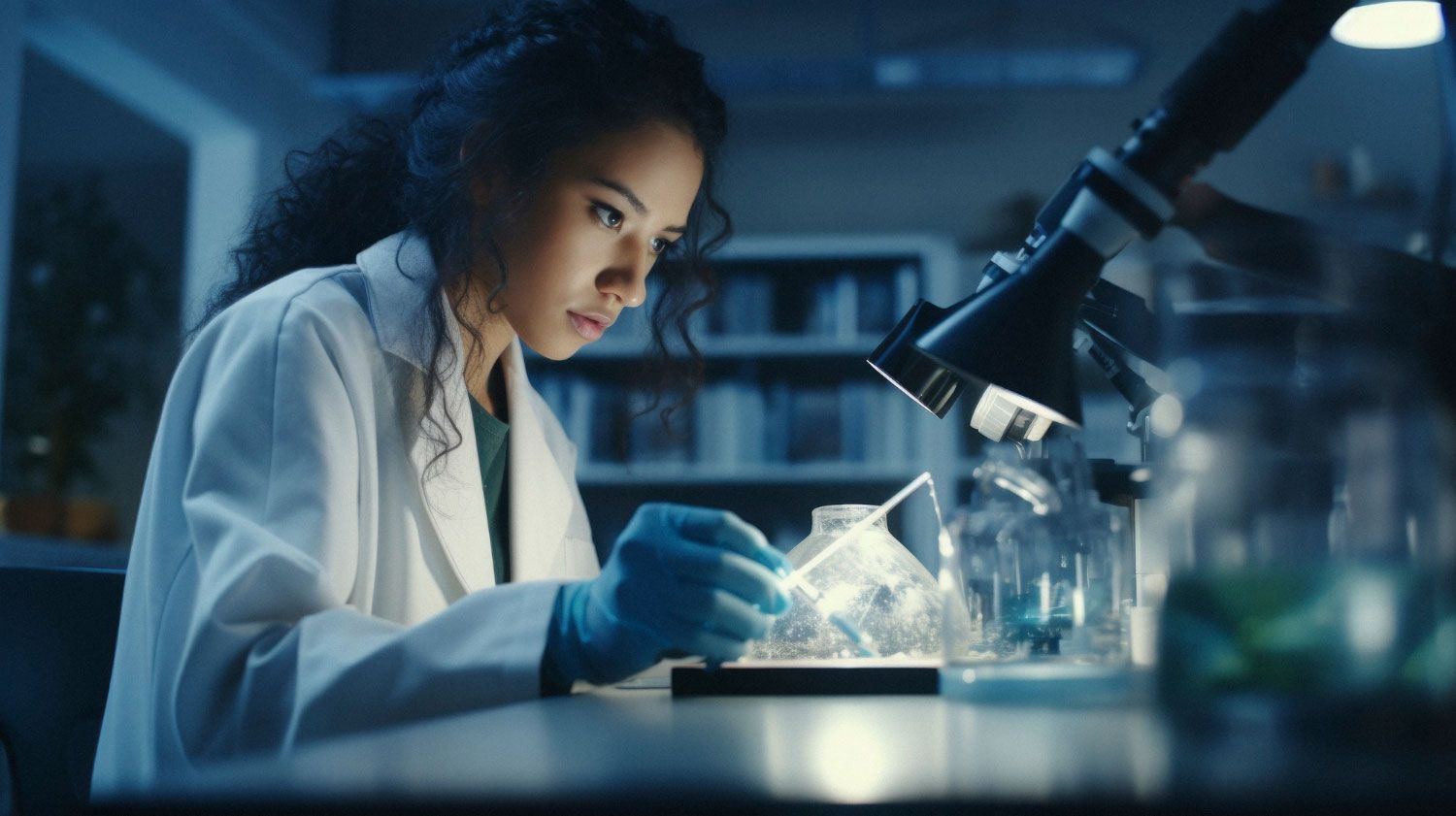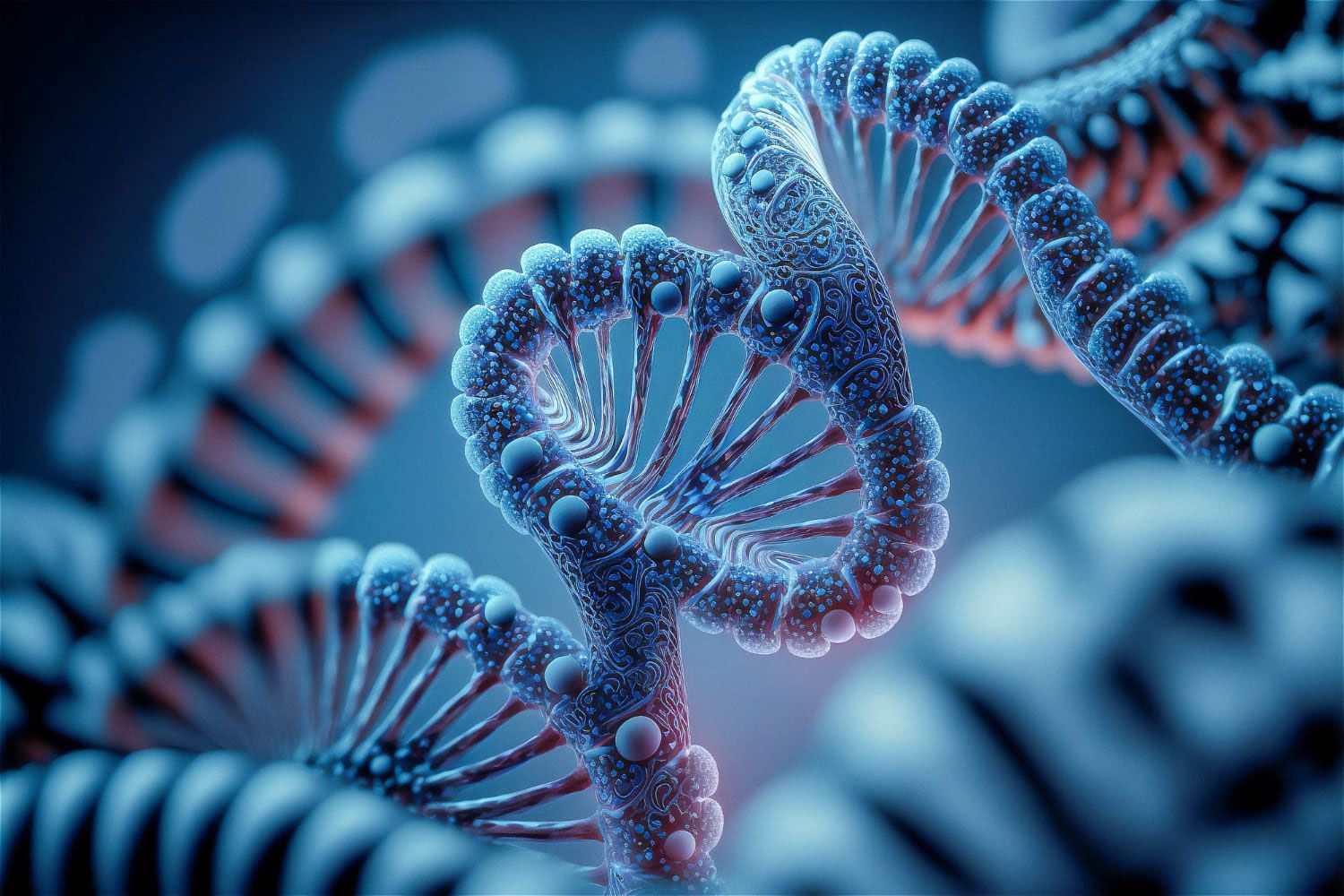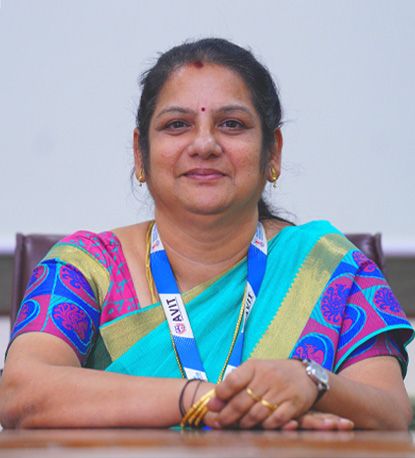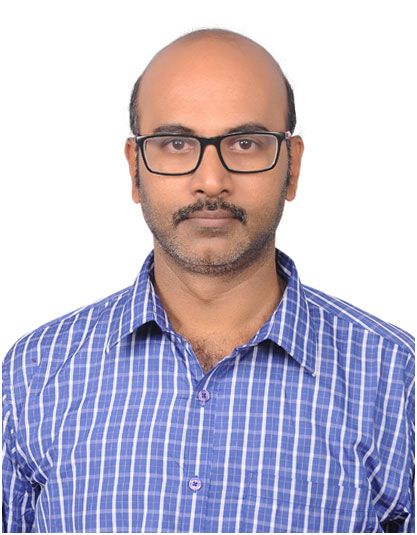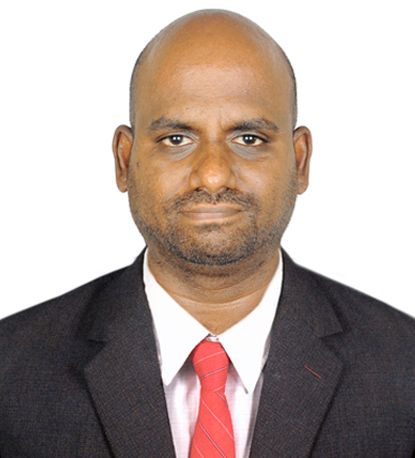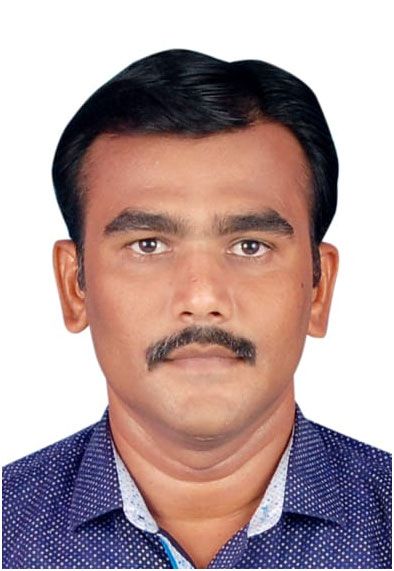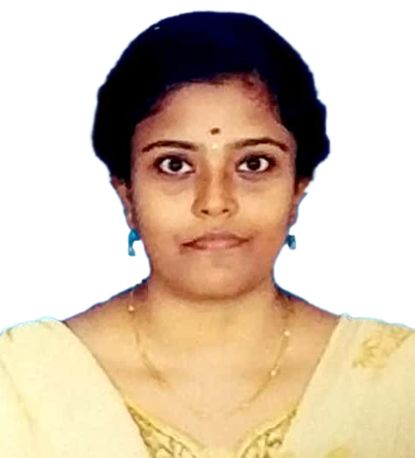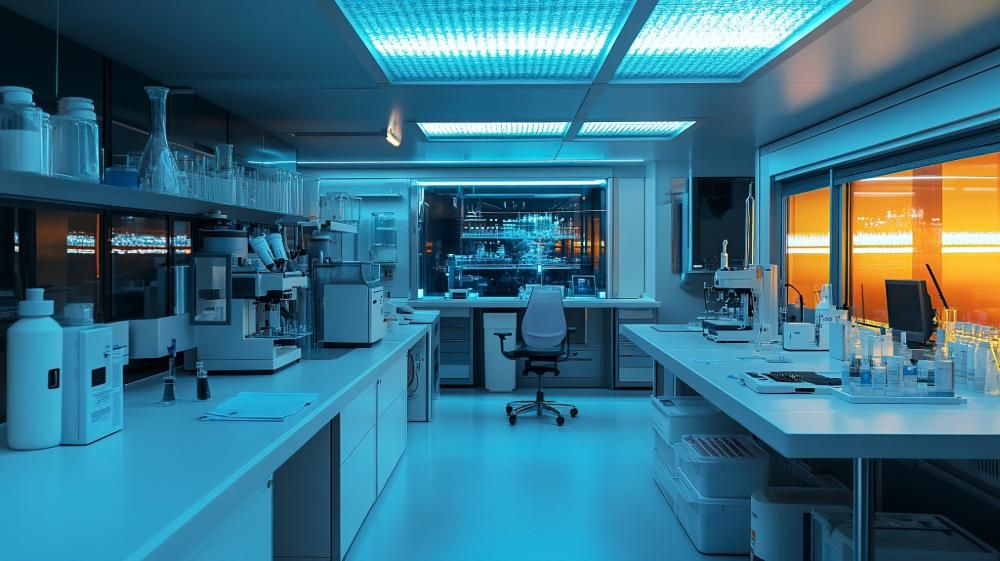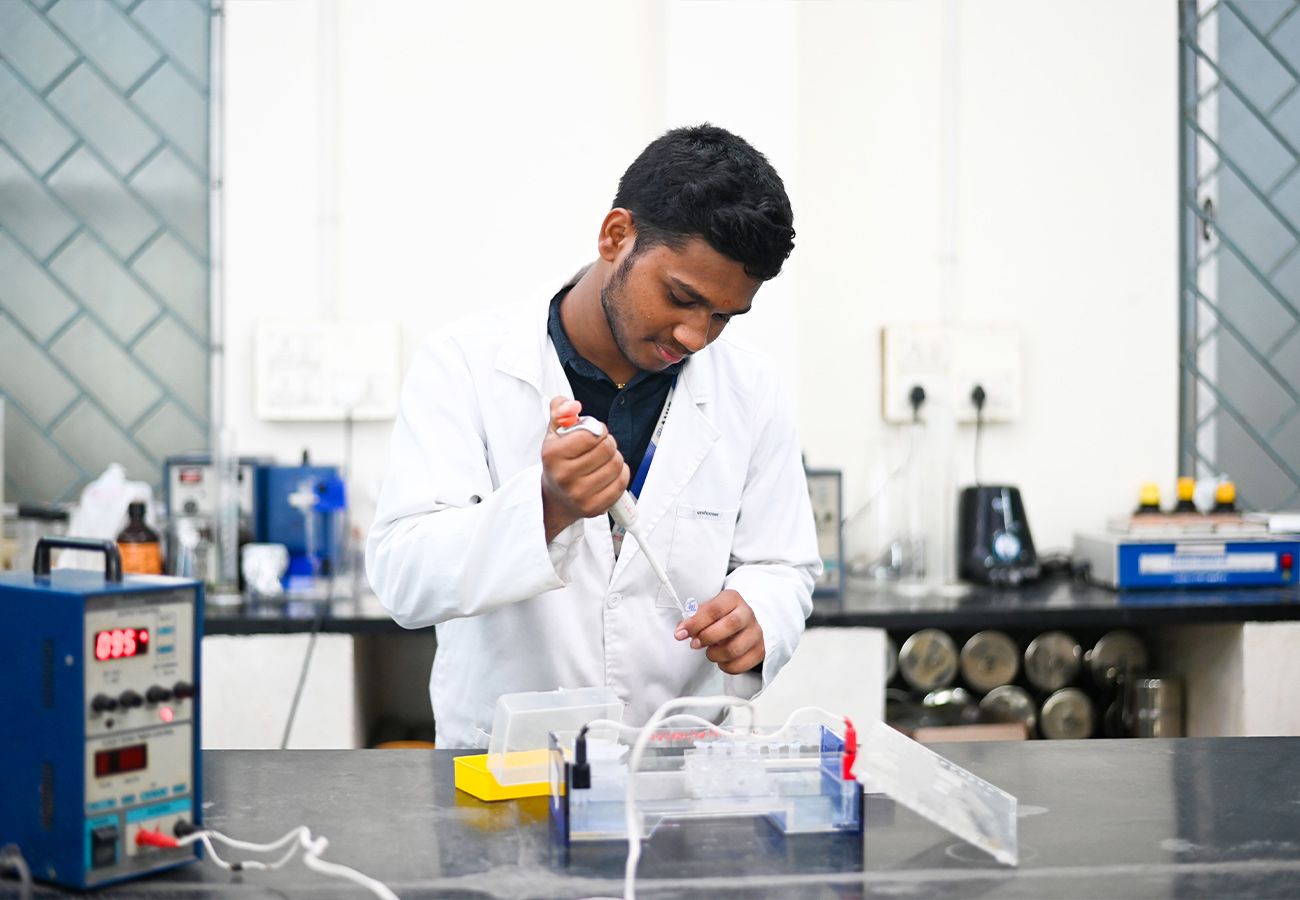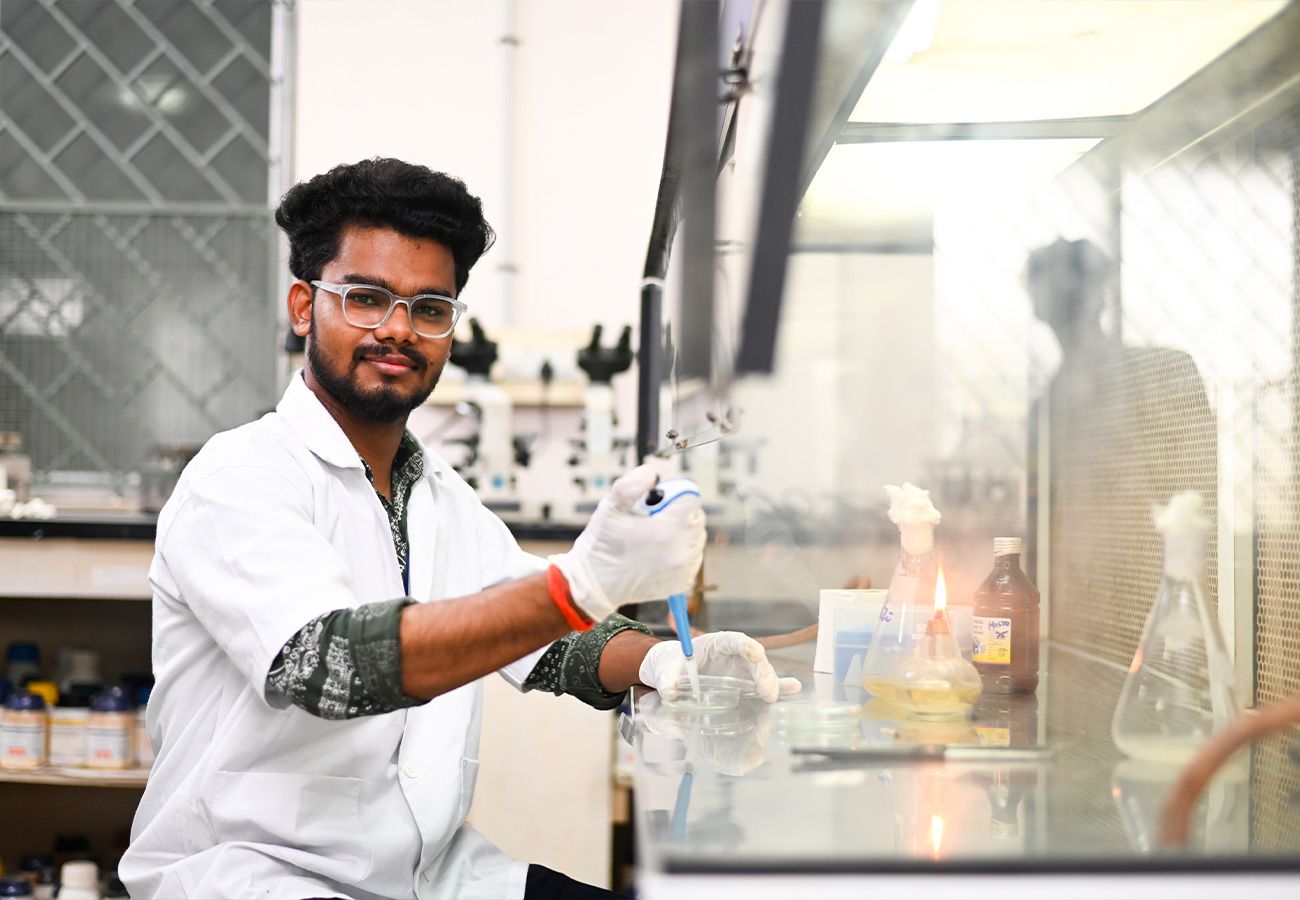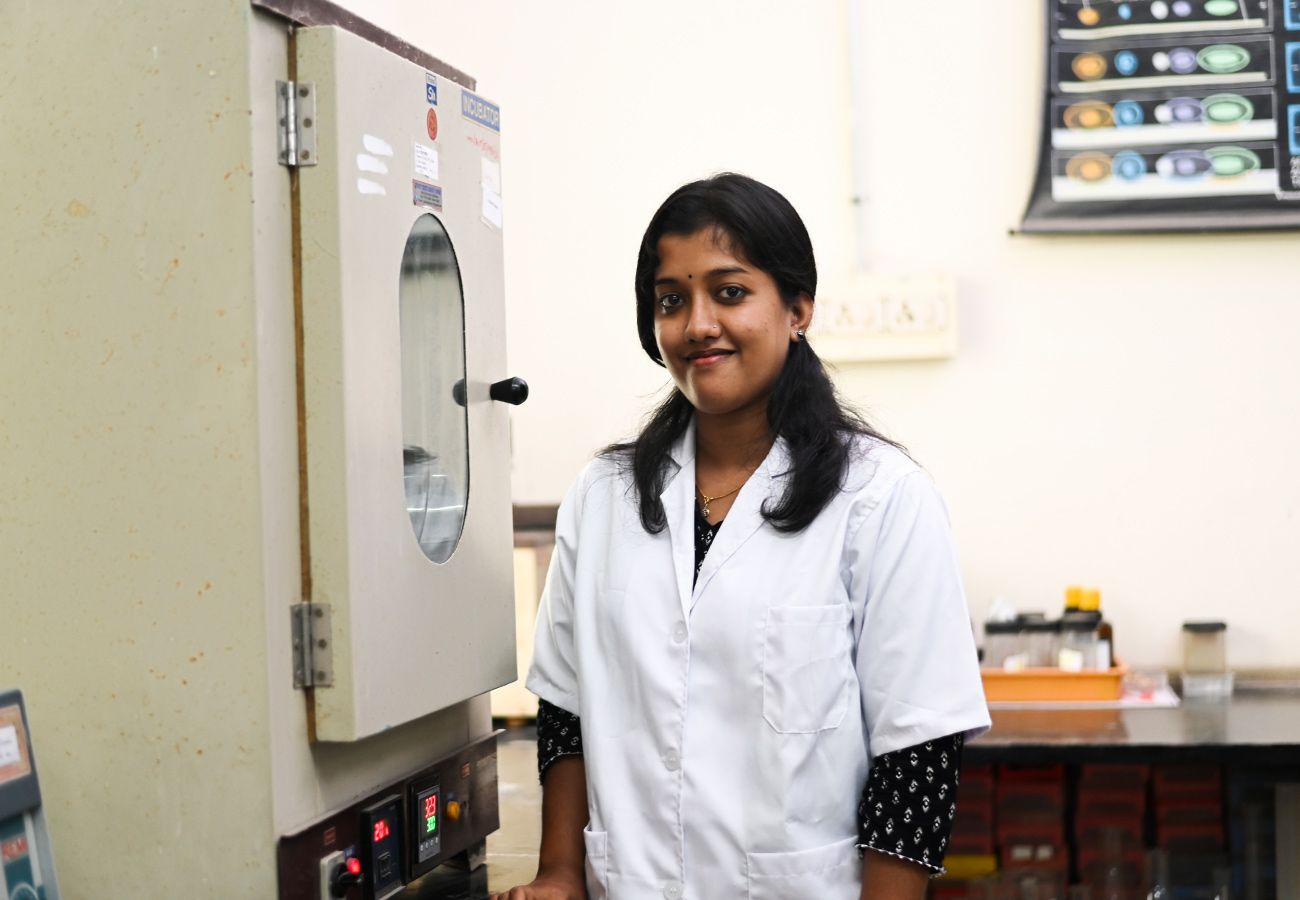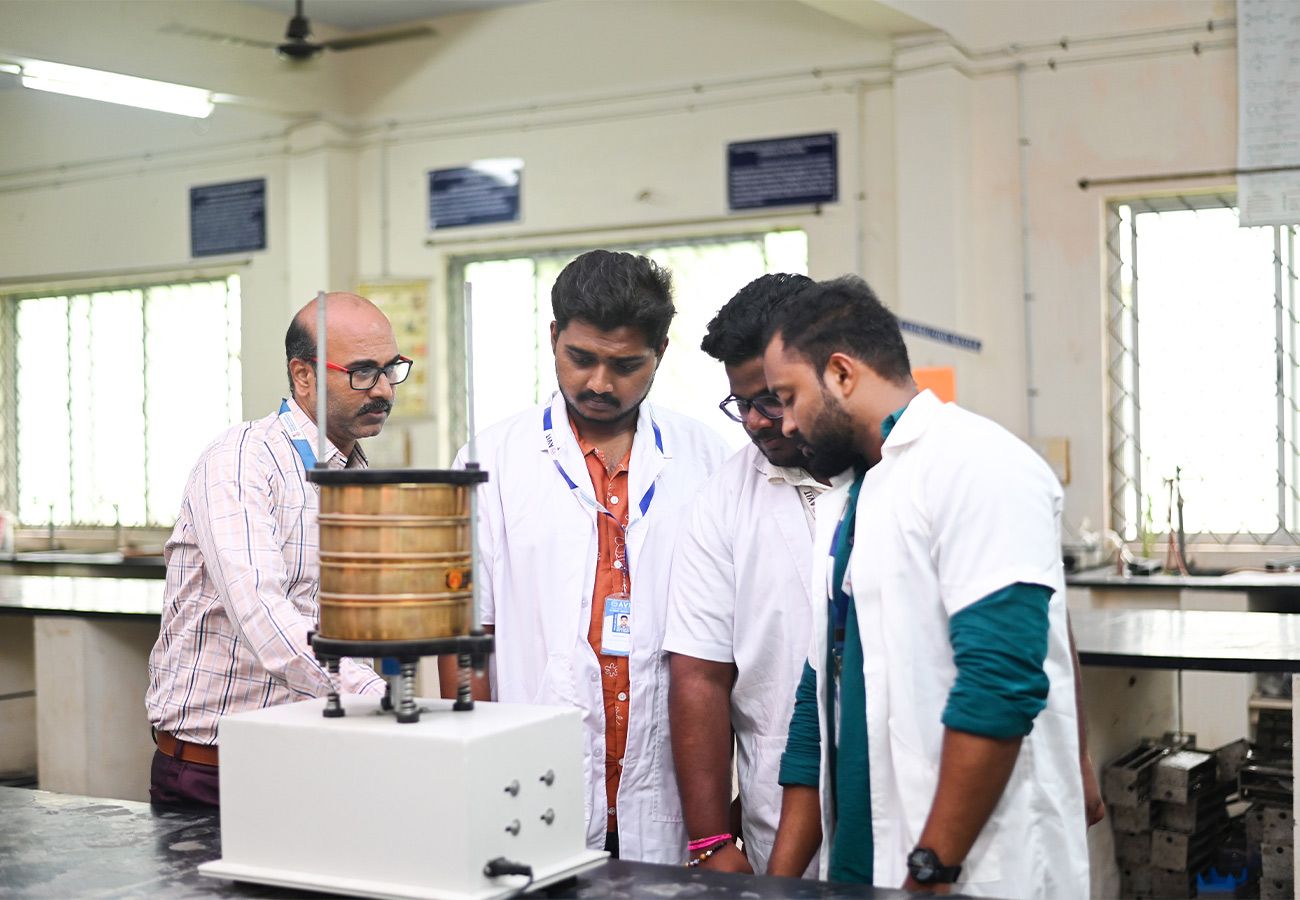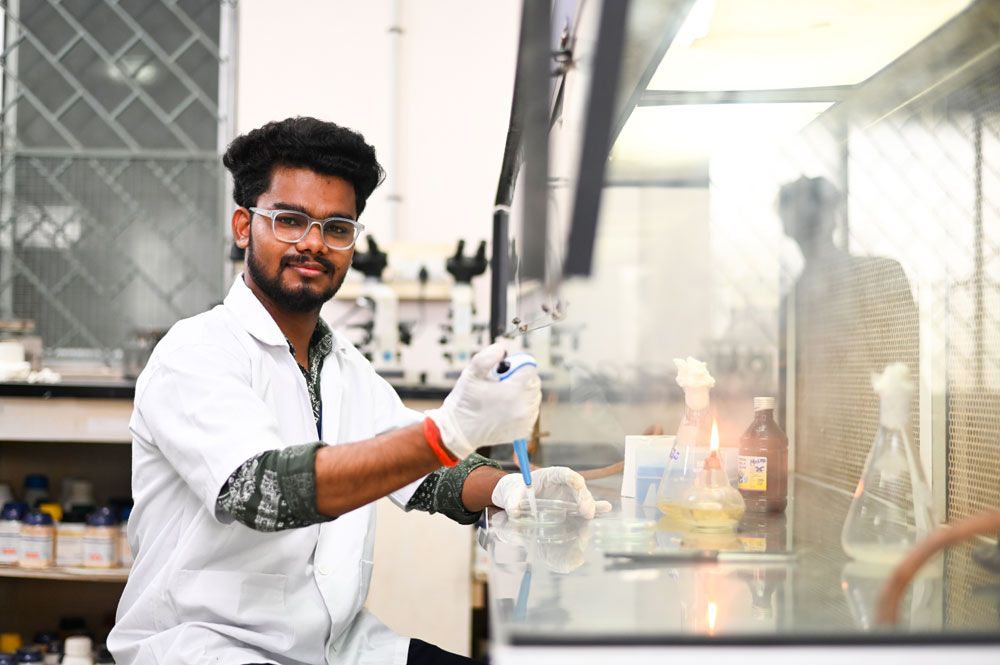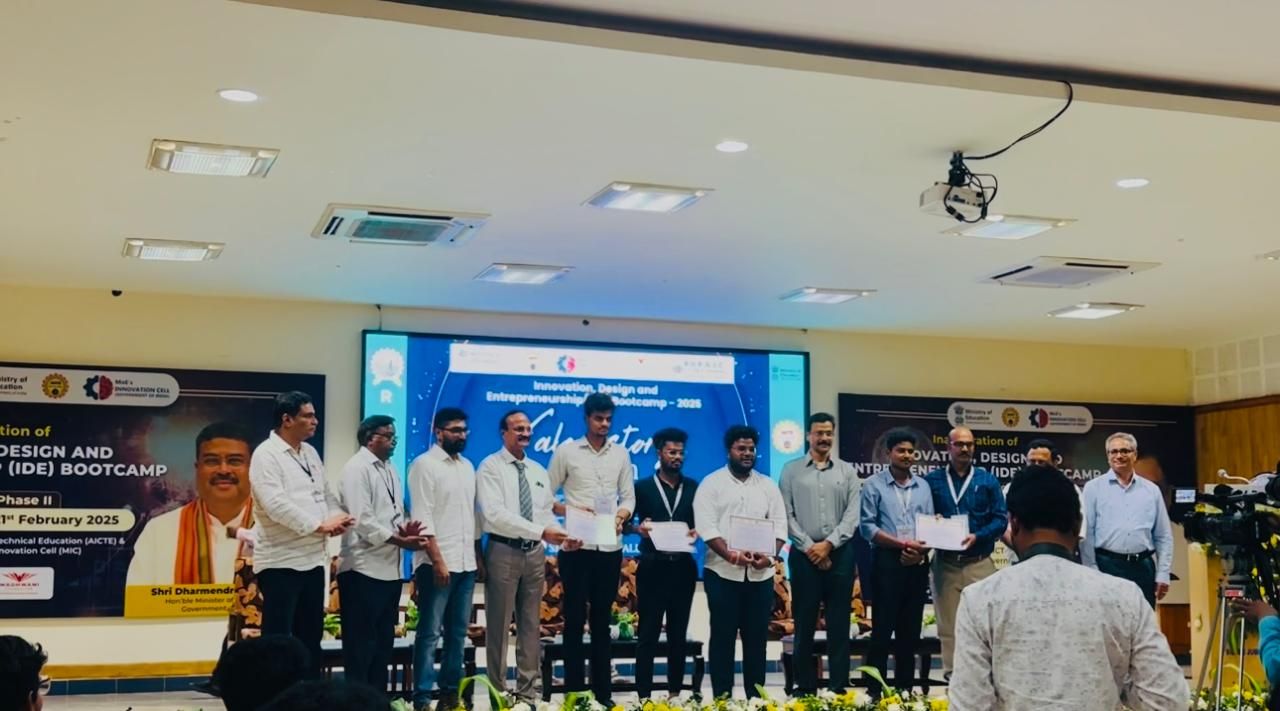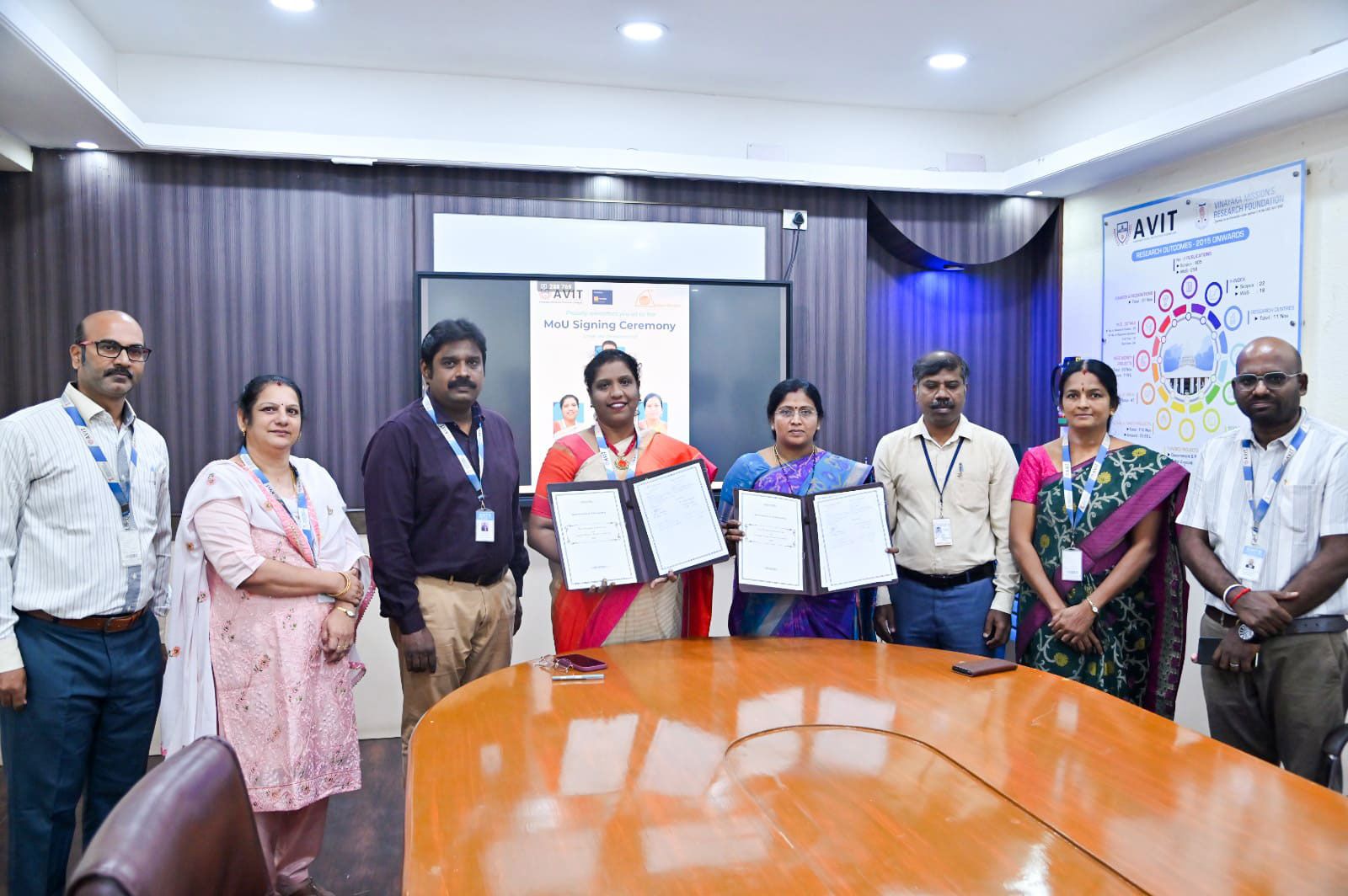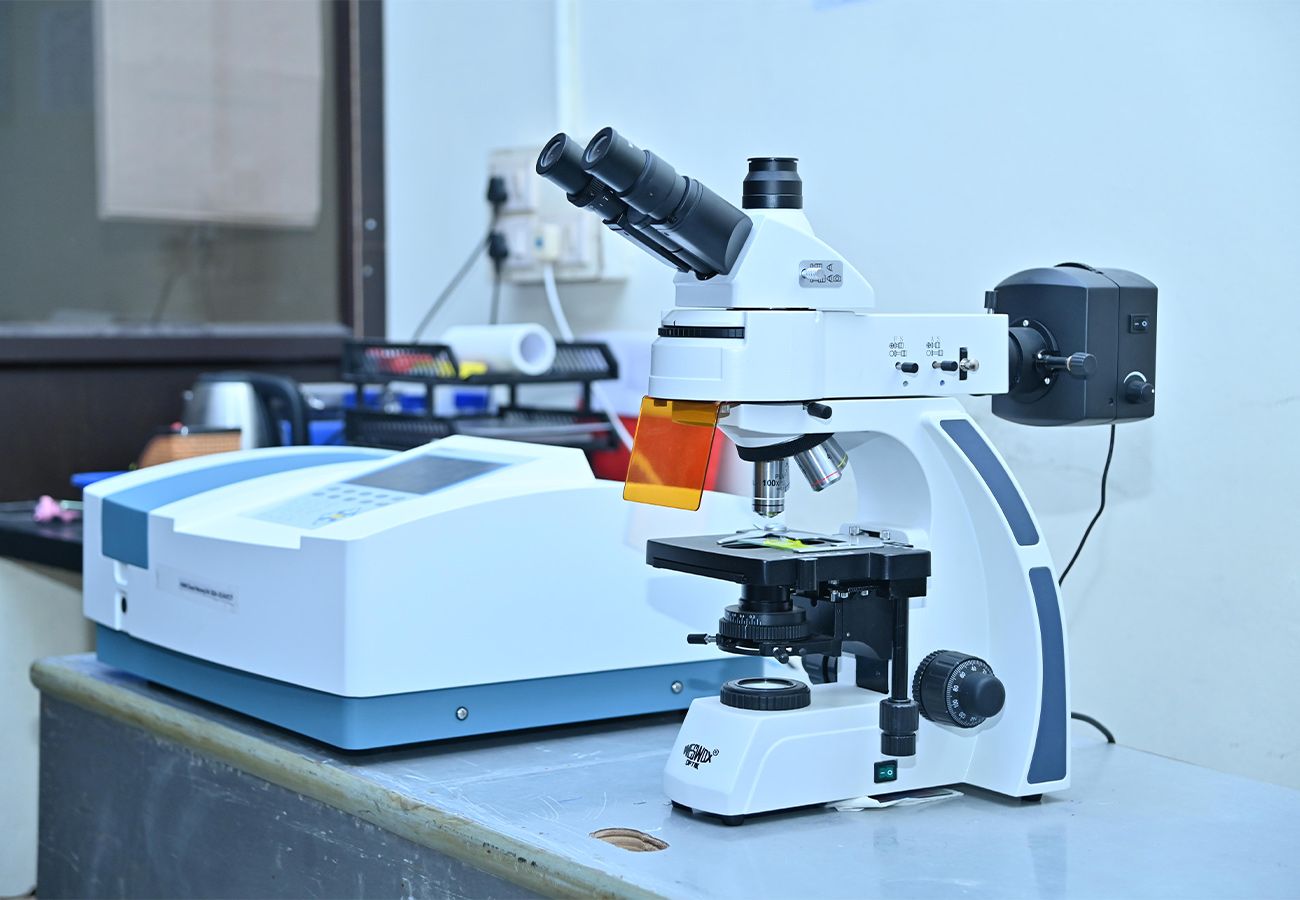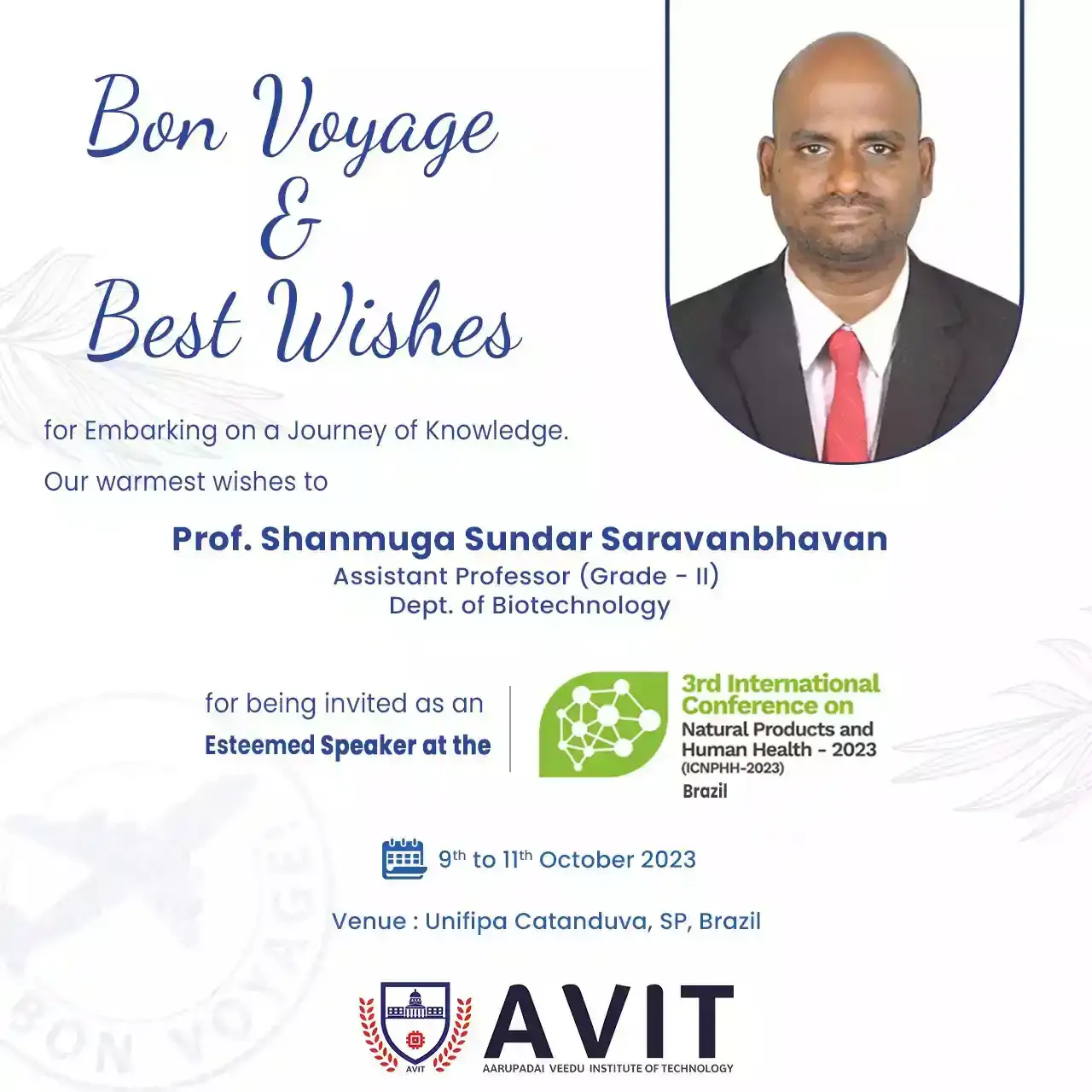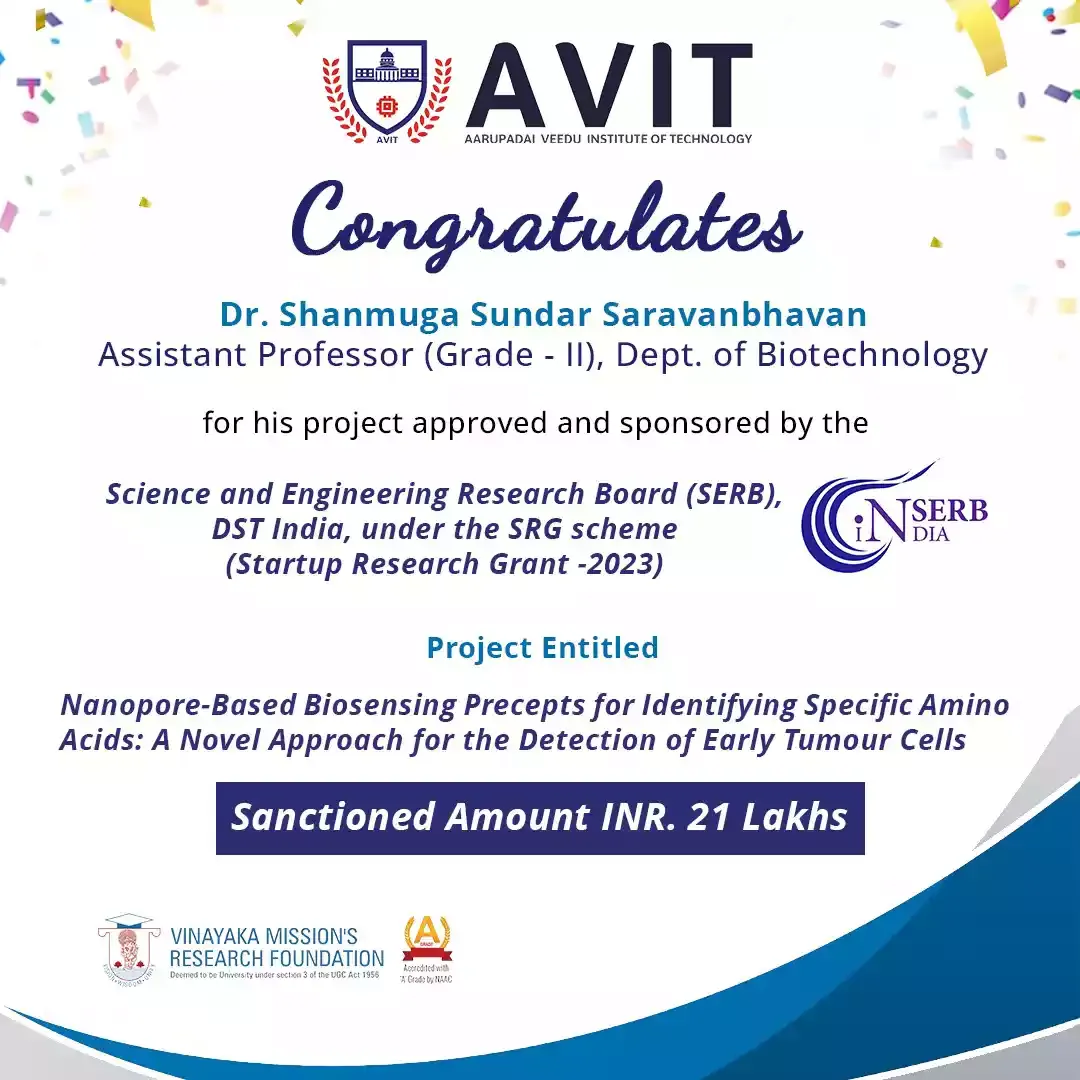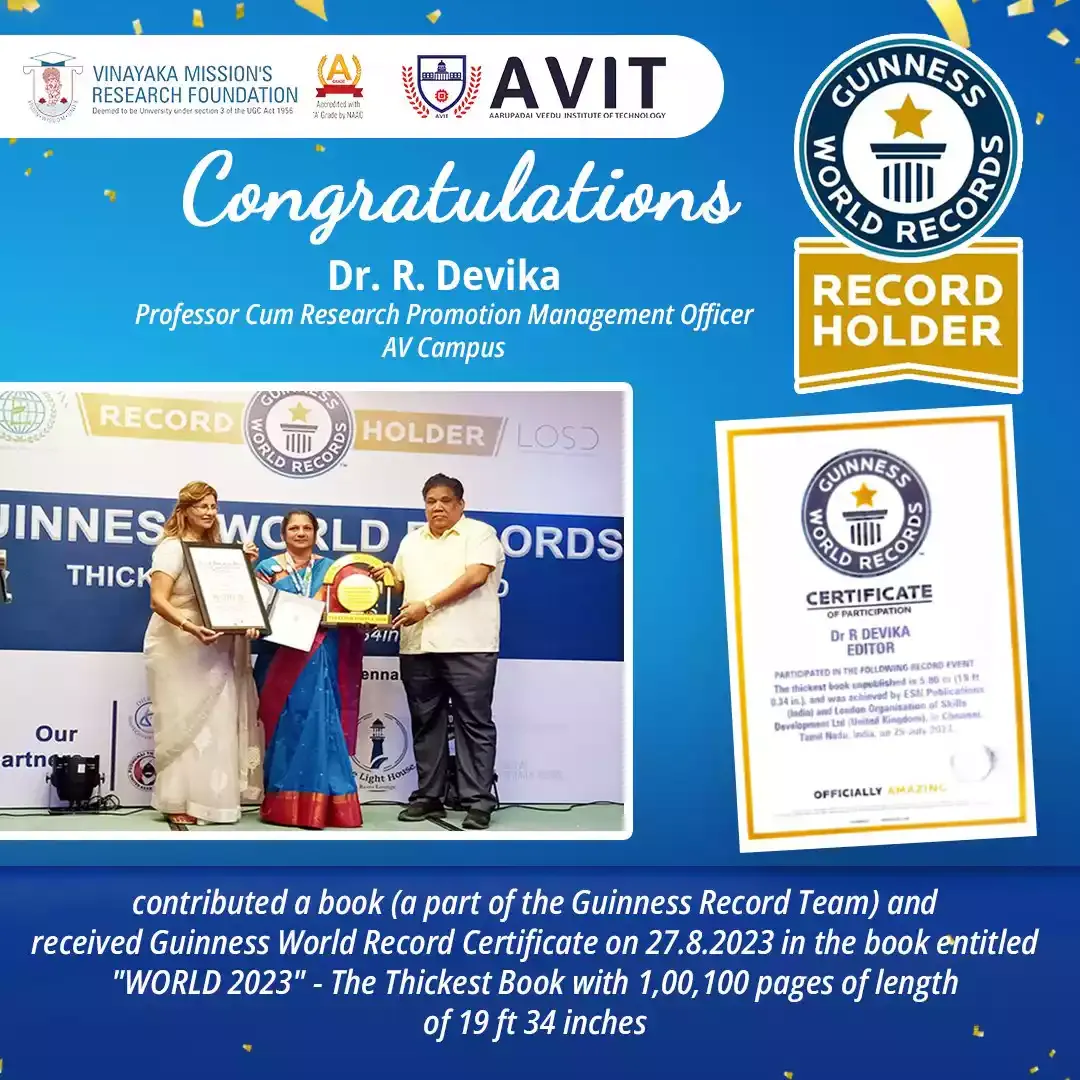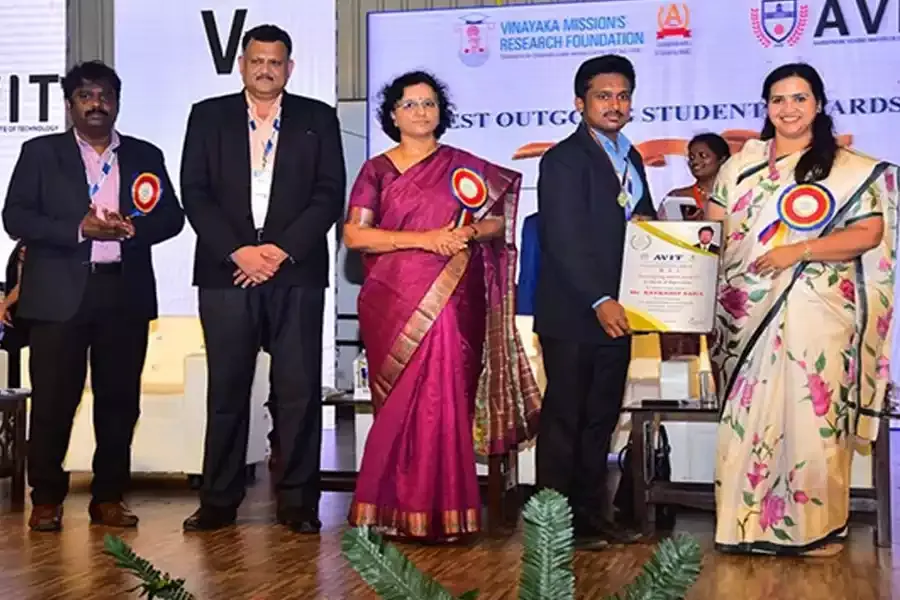Department of Biotechnology
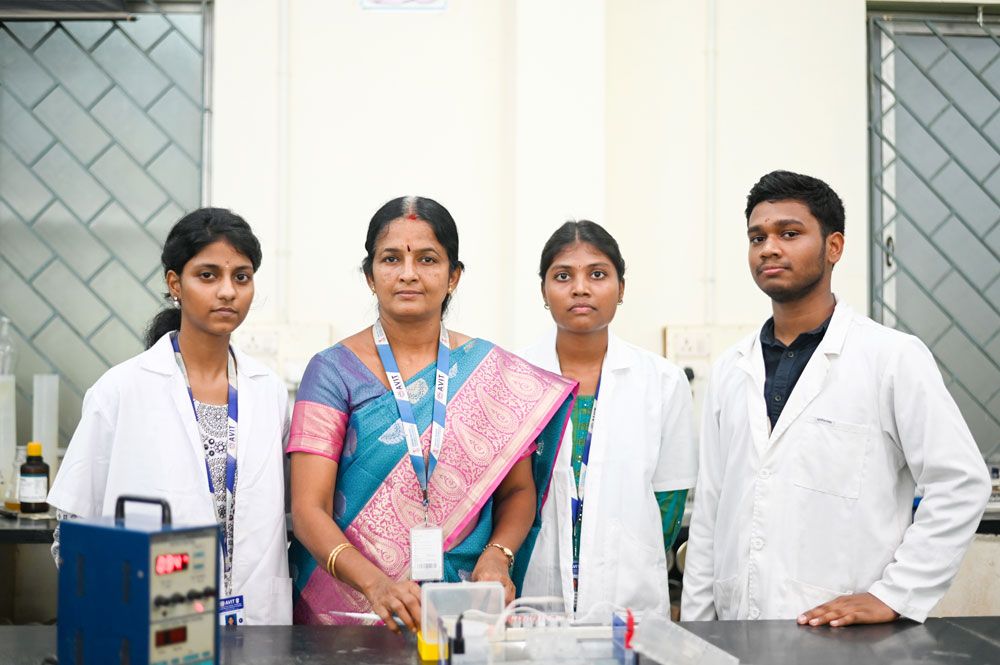
Department Overview
Welcome to the Department of Biotechnology, the department offers a multi-disciplinary curriculum that is augmented by the research and development activities with a very diverse faculty, staff, and student population. The department serves three integrated functions of educating the next generation of under graduate students, focus on Research in biotechnology and the environments and public outreach to help the society implement new technologies.
Mission & Vision
Building a Future of Excellence Through Purpose and Direction
Our Mission
The department is committed to train students to utilize their knowledge and expertise for the rapidly growing Biotechnology industry and to achieve a good working co-operation with experts from other related fields, also encouraging and preparing them for research activities in Biotechnology.
Our Vision
To provide quality education for the young students and to expand their knowledge and understanding on the cutting edge technology of scientific and engineering principles underlying the field of Biotechnology.
Dr. A. Nirmala
Associate Professor and Head
Our department operates in sync with the institution’s vision, encouraging you to seize every opportunity for growth and excellence. Our dedicated team of faculty members is here to mentor and guide you on your journey of discovery, curiosity, and achievement. Your success is our priority, and I eagerly anticipate witnessing your remarkable contributions to the world. Get ready for an exciting academic adventure in the field of Biotechnology
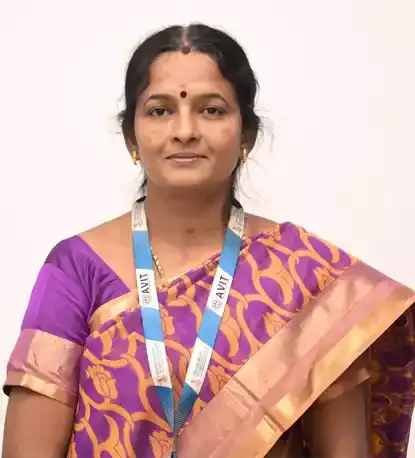
Programme Highlights
What You’ll Achieve with Us
Programme Outcome (POs)
Graduates will be able to:
| PO. No | Outcomes | Description |
| PO 1 | Engineering Knowledge | Apply knowledge of mathematics, natural science, computing, engineering fundamentals and an engineering specialization as specified in WK1 to WK4 respectively to develop to the solution of complex engineering problems. |
| PO 2 | Problem Analysis | Identify, formulate, review research literature and analyze complex engineering problems reaching substantiated conclusions with consideration for sustainable development. (WK1 to WK4) |
| PO 3 | Design/Development of Solutions | Design creative solutions for complex engineering problems and design/develop systems/components/processes to meet identified needs with consideration for the public health and safety, whole-life cost, net zero carbon, culture, society and environment as required. (WK5) |
| PO 4 | Conduct Investigations of Complex Problems | Conduct investigations of complex engineering problems using research-based knowledge including design of experiments, modelling, analysis & interpretation of data to provide valid conclusions. (WK8). |
| PO 5 | Engineering Tool Usage | Create, select and apply appropriate techniques, resources and modern engineering & IT tools, including prediction and modelling recognizing their limitations to solve complex engineering problems. (WK2 and WK6) |
| PO 6 | The Engineer and The World | Analyze and evaluate societal and environmental aspects while solving complex engineering problems for its impact on sustainability with reference to economy, health, safety, legal framework, culture and environment. (WK1, WK5, and WK7). |
| PO 7 | Ethics | Apply ethical principles and commit to professional ethics, human values, diversity and inclusion; adhere to national & international laws. (WK9) |
| PO 8 | Individual and Collaborative Team work | Function effectively as an individual, and as a member or leader in diverse/multi-disciplinary teams. |
| PO 9 | Communication | Communicate effectively and inclusively within the engineering community and society at large, such as being able to comprehend and write effective reports and design documentation, make effective presentations considering cultural, language, and learning differences |
| PO 10 | Project Management and Finance | Apply knowledge and understanding of engineering management principles and economic decision-making and apply these to one’s own work, as a member and leader in a team, and to manage projects and in multidisciplinary environments. |
| PO 11 | Life-Long Learning | Recognize the need for, and have the preparation and ability for i) independent and life-long learning ii) adaptability to new and emerging technologies and iii) 30 critical thinking in the broadest context of technological change. (WK8) |
Programme Specific Outcome (PSOs)
Upon successful completion of the course the students are expected to:
| PSO. No | Description |
| PSO 1 | To identify, formulate, design, analyse and develop processes and technologies for biotechnological products for societal usage and economically sustainable for the present and future. |
| PSO 2 | To expertise in implementation of modern biotechnological tools to address human health, complex engineering problems and to improve the research approach in interdisciplinary facet. |
| PSO 3 | To recognise the knowledge, need for and the importance of bioethics, environmental and social responsibilities for life long learning in the broadest context in technological changes. |
Programme Educational Objectives (PEOs)
| PEO. No | Description |
| PEO 1 | To provide the biotechnology graduates to have expertise in biotechnological aspects which will enable them to have a career and professional achievements in public and private sector. |
| PEO 2 | Address the nuances of biotechnology in real life on application of microorganisms in industrial production of enzymes and products, downstream processing, genetic engineering, tissue culture and applications. |
| PEO 3 | Identify, design and develop biotechnological process and technologies to meet the industrial challenges and produce tools which a sound and economically viable and sustainable. |
Board Of Studies
| S.No. | Name & Designation | Particulars |
| 1 | Dr. R. Devika Professor cum RPMO Department of Biotechnology, Aarupadai Veedu Institute of Technology Vinayaka Missions Research Foundation Paiyanoor. | Chair Person |
| 2 | Dr. B. S. Lakshmi Professor, Director and Head, Department of Biotechnology, Anna University Chennai -600025 Mobile No: 9841821255 Email: lakshmibs@annauniv.edu, lakshmibs1@gmail.com | Academic External Expert |
| 3 | Mr. S. Karthick Quality Control Department, SV Chem Intermediate Private Limited, Alathur, Thiruporur 603110 | Industrial External Expert |
| 4 | Dr. M. Sridevi Professor & Head Department of Biotechnology Vinayaka Missions Kirupaanda Variyar Engineering College, Salem. | Member |
| 5 | Dr. A. Nirmala Associate Professor and Head Department of Biotechnology Aarupadai Veedu Institute of Technology Vinayaka Missions Research Foundation Paiyanoor. | Member |
| 6 | Dr. L. Nagarajan Associate Professor , Dept. of Biotechnology, AVIT | Member |
| 7 | M. Subathra Assistant Professor Department of Biotechnology, AVIT | Member |
| 8 | Dr. R. Kirubakaran Assistant Professor Department of Biotechnology Vinayaka Missions Kirupaanda Variyar Engineering College, Salem. | Member |
| 9 | Mr. M. Senthilnathan Assistant Professor Department of Biotechnology Vinayaka Missions Kirupaanda Variyar Engineering College, Salem. | Member |
Scope for Biotechnology
| S.No | Medical field | Agriculture | Waste recycle | Food and Feed industry | Environment |
| 1 | Diagnostic lab | Tissue culture lab | Pollution control Board | Developing fast food items | Animal husbandry |
| 2 | Clinical Lab Technical staff | Development of Genetically modified foods | Central Leather Institute | Tetra pack juice –Industry | Textile industry |
| 3 | Pharmaceutical Industry | Plant breeders | Waste water treatment plant | Quality control -Food industry -Bakery unit -Brewery Industry | Epidemiologist |
| 4 | Herbal medicine | Crop management | Diet and Disease | Process Engineers | |
| 5 | Nursery growing medicinal crops | Agriculture research Centre | Nutrient flour preparation | Biofuel technician | |
| 6 | Medical lab Technician | Chemical fertiliser Industry | Nuts and Try food industry | Environmental safety and Health technician | |
| 7 | Technical operating Instruments | Bio compost preparation | Food sample inspectors | Green house and Field Technician | |
| 8 | Hospitals | Biological control | Water Quality technician | ||
| 9 | Research lab | Genetic Engineering lab Hydroponics Aqua phonics Spirulina Cultivation Azola Cultivation |
| S.No | Other area |
| 1 | IPR Office |
| 2 | Higher Studies |
| 3 | Research |
| 4 | Teaching |
Industry Partners
VEmerge+ Industry Integrated Programmes offered in Collaboration with Industry Partners
Programmes Offered
Start Your Learning Journey
Laboratories
State of the Art Laboratories
Take a 360° Virtual Tour of Biotechnology Department
Explore our vibrant campus and discover where innovation, learning, and community thrive.
Powering Research
Centres of Excellence
News & Events
What’s Happening in Biotechnology Department

Seminar on Immuno Diagnosis of Emerging Infectious Diseases
Date: 24/08/2023

Webinar on Plant Based Biosensors: Current Trends
Date: 28/04/2023

A SEMINAR REPORT PRECLINICAL DRUG DISCOVERY
Date: 28/04/2023

A Report on Green Campus-Tree plantation
Date: 11/04/2023
Your Future Begins at AVIT College
Innovative programmes, expert faculty, and industry connections to guide your success
